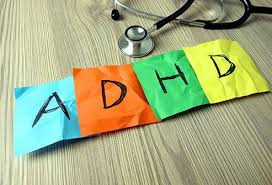We’re learning more and more about ADHD. If you or someone you love lives with ADHD, you might find some helpful techniques to try courtesy of our Registered Psychologist (Provisional) Lana McAleer
It seems like the more we realize about attention-deficit hyperactivity disorder (ADHD), the more people that have it. Many adults went undiagnosed as children.
ADHD is used to describe when your brain has been wired differently than other people around you, sometimes called being neurodivergent.
People with ADHD can be highly impulsive, distractable, or both.
Common behaviours include struggling to stay on task, forgetting things, difficulty with organization, struggling to sit still, fidgeting, making impulsive decisions, reacting quickly emotionally, excessive talking, and more.
You may be one of these adults who now has an answer about why you have always thought and acted differently than people around you.
I want to acknowledge that it may be incredibly frustrating realizing that things may have been different when you were younger had you received the appropriate supports.
The past can’t be changed, but the present may be made easier by using the following tips.
1. Create a realistic daily schedule.
When starting out it is better to give yourself fewer tasks that you know you will accomplish versus scheduling so much into your day that you won’t get it down.
2. Break large tasks into smaller tasks.
This may mean setting a time limit for tasks that can’t be broken down.
3. Acknowledge that sometimes you have to do a task even when you’re not in the mood to do so.
4. Focus on the outcome of completing a task.
It can help to focus on how good it will feel to complete a task, rather than focusing on how hard the task might be.
5. Create a distraction free zone for completing tasks.
It can help to silence your phone and place it away from you where you can’t see it.
6. Develop plans for handling distraction.
It’s likely that there is going to be some form of distraction. It may be helpful to think about likely distractions and coming up with a plan to use to help you stay on track.
7. Identify procrastination behaviors.
8. Know your objective and stick to it.
Remind yourself or what your task is and go straight to it, avoiding any detours.
9. Reward yourself for completing tasks.
Thanks, Lana. This is really helpful information.
Lana McAleer is a Registered Paychologist (Provisional). She works with Adults, Children and Youth and specializes in the following:
- Stress
- Anxiety
- Panic Attacks
- Depression
- Mental Health Issues
- ADHD
- Self Esteem
- Self Confidence
- Self Compassion
- Communication Issues
- And many more areas
Book your appointment with LANA here.
Cheers to understanding and managing ADHD,
Penney

